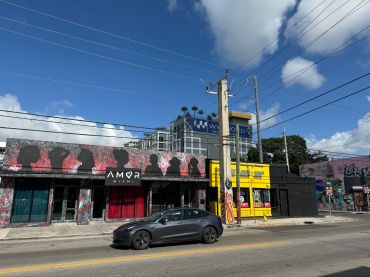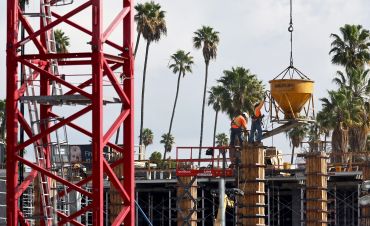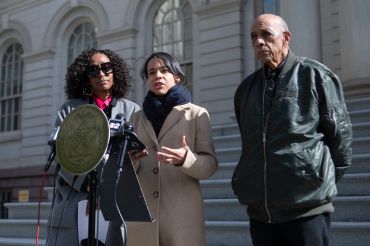IN-SPEYER-ING: Tishman Speyer President Rob Speyer on REBNY
By Al Barbarino January 16, 2013 7:00 am
reprintsAre some of the city’s initiatives in terms of new universities a step in the right direction?
I think the Cornell Technion venture will be one of the mayor’s most important legacies. My family has created an endowed professorship in the name of my grandfather—the Robert V. Tishman Founder’s Chair—that will be the university’s first. We wanted to do everything we could to support that initiative. But it’s the kind of initiative that’s going to spur innovation, generate economic growth and ultimately create jobs.
So what’s your agenda going in as REBNY’s chairman, and what are some of the things you’d like to accomplish?
We’ve been blessed with great leadership and strong leadership in City Hall, and we are going to work very hard as an industry to help the next mayor achieve that same level of success. The city still faces some difficult challenges. Our unemployment rate is nearly 10 percent. Issues of job growth and economic development aren’t just important to the real estate industry, they’re important to every single citizen of New York. We are going to work hard to help shape that agenda with the next administration. We’re going to work with labor; we’re going to work with the corporate community. There’s a larger shared agenda among New Yorkers than many people realize.
Do you glean lessons from your father and grandfather? What does a successful REBNY chair do or accomplish while holding that post?
It wasn’t in my grandfather’s nature or father’s nature to think about it that way. I think they went into the job thinking about the best interest of the industry as a whole. The REBNY leadership and executive committee is a group of strong-willed and talented individuals, made up of some of the industry’s icons. It moves by consensus and by shared interests, and you try to harness those talents and those energies for the best interest of the industry. One of the things that I love about the real estate industry is that your competitors are also your friends. And while you compete for transactions, you also work hard together to lift the industry and try to better the city as a whole.
On that note, do you feel any pressure following in your father and grandfather’s footsteps?
It’s a path I’ve forged before in business, and it’s a path that started with my great-great grandfather Julius Tishman in 1897. I’m the fifth generation in our family’s business, so I’m familiar with the dynamics of succeeding great men who happen to be relatives. Both my grandfather and my father are defined by their humility and selflessness when it comes to civic matters.
I was at a dinner two nights ago, and I was approached by a man who used to run facilities for Montefiore hospital in the Bronx, which was one of my grandfather’s pet philanthropic projects, and he chaired the board for a time. This gentleman, who I had never met before, said, “Your grandfather convinced us 30 years ago to build a cogeneration plant at the hospital. At the time, nobody understood the potential benefits, but we had great trust in your grandfather’s judgment, and we had that trust in his judgment because he never acted out of self-interest. We knew he was only considering the best interests of the hospital, and you can’t even imagine how many millions of dollars that saved the hospital over the past 30 years.” I never knew about that. My grandfather would never talk about that. He never would talk about the things that he did. He just would do them.
What about your own philanthropic endeavors—which are the most important?
I’m the co-chairman of the construction committee for the renovation at St. Patrick’s Cathedral, our neighbor at Rockefeller Center. I’ve been privileged to work with the cardinal [Timothy Dolan] and the archdiocese as they move ahead with the renovation there. It’s one of the most important religious buildings in the world, and certainly the signature cathedral in the United States, but it has not been renovated in decades. The cardinal is one of the most extraordinary men I’ve ever met. He has a degree of emotional intelligence that is off the charts, and his ability to connect with people, whatever their background, is without parallel. Just getting to spend time with him, sitting in the room with him, having breakfast with him, getting a chance to tell jokes with him—it’s a privilege. You couple that with the good work we’re doing, and it’s been an unforgettable experience.
What’s your relationship like with your predecessor, Mary Ann Tighe?
Ironically, it was Mary Ann Tighe who recruited me to work with the cathedral. She’s been a great friend and, frankly, a role model. She’s one of the first big players that I met in the industry when I joined the company. She was representing Christie’s [the art auction house] when it was moving from the old Delmonico Hotel. Mary Ann came up with the idea of transforming that six-story parking garage at Rockefeller Center into Christie’s. I watched her over months—she formulated the idea, persuaded her client, and then we negotiated the transaction with her. It was one of those lessons that you never forget. So from my earliest days in the business, I’ve been learning from her. I think it’s also important to note—she shattered the ceiling. She shattered the ceiling. In an industry that has long been male-dominated, that achievement is extraordinary.
You have a reputation of being reluctant to give interviews. Now that you are REBNY chair, do you see that changing?
I hope not. [Laughs] I hope not too much … as little as possible. It’s just a personal preference. I’m kind of a private guy.


